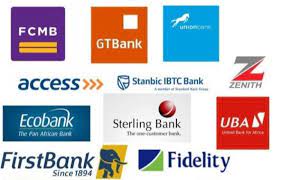Hardship lets Nigerians abandon 5.7m bank accounts
Hardship lets Nigerians abandon bank accounts in 12 months
By Jeph Ajobaju, Chief Copy Editor
Biting economic hardship forced Nigerians to abandon 5.7 million bank accounts in 2021, up on 52.2 million in 2020 to close at 57.9 million in 2021.
The 11 per cent rise in inactive bank accounts is contained in the Nigerian Interbank Settlement System (NIBSS) Electronic-payment Fact Sheet for 2021 just released.
The Bank Customers Association of Nigeria (BCAN) attributed the decline to the survival struggles in the economy.
However, new bank accounts were opened in the two years, which increased the total number of bank accounts to 133.5 million in 2021, a rise of 16 per cent on 114.5 million in 2020.
Bank customers grew by 18.4 million to 122.3 million in 2021, up 18 per cent from 103.9 million in 2020, according to NIBSS data.
It also shows current accounts rose 14 per cent to 49.8 million in 2021 from 43.6 million in 2020; savings accounts 7.8 per cent to 120.4 million in 2021 from 111.7 million in 2020.
__________________________________________________________________
Related articles:
Abuja’s tax plan stokes fear of business closures, job losses
10m Almajiris, 90m jobless youths buffet Nigeria
Parents struggle to educate children amid rising costs
__________________________________________________________________
Drivers of inactive bank accounts
BCAN President Uju Ogubunka listed the drivers of inactive bank accounts to include increase in the prices of goods and services, low income accompanied by low purchasing power, rising unemployment, and emigration.
If the economy fails to recover, he said, Nigeria would see more inactive bank accounts in 2022 which would hinder financial inclusion targets, according to Vanguard.
“The rise in inactive bank accounts is a product of what is happening in the economy,” Ogubunka explained.
“You don’t run a bank account when you don’t have income. The rate of unemployment has increased, making it impossible for some people to fund their bank accounts.
“Inflation rate is also rising which is also a factor making people spend more without having anything left to save or even send.
“If the income capacity of people increases and they have surplus after settling expenses, then they can go to the bank.
‘‘If there is no improvement in the source of income of people we should expect more inactive bank accounts by the end of 2022. If such occurs, it will drag back the financial inclusion goal.”












